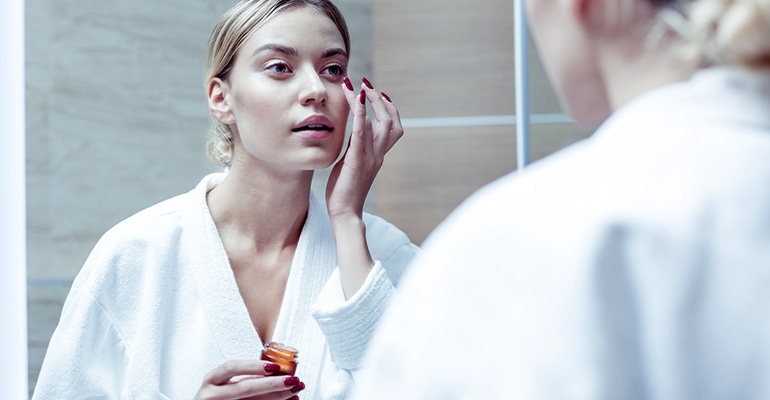What 4 generations look for in natural personal care products
While the shift to greener, cleaner beauty is being driven by consumers of all ages, there are several key differences in the ways that Gen Z, millennials, baby boomers and Gen Xers approach the category.

Natural, sustainable beauty and personal care products are, it’s safe to say, becoming mainstream. But the lack of federally set standards has allowed for a good deal of greenwashing within the industry, leading to consumer mistrust and confusion in a category that affects one’s health just as much as one’s dietary choices. Orbis Research has found that beauty is now a $523 billion business globally, and natural brands and retailers have the upper hand in terms of building trust with the new conscious, connected consumer. With respect to this, here are four generations’ buying behaviors—and how you can use them to your advantage—when it comes to natural personal care.
Gen Z
Gen Z is perhaps the most important generation for upstart natural personal care brands to cater to; a survey from Mintel shows that most members of this generation actively seek out verifiably clean and organic makeup and personal care products that make them look like themselves. They are more experience-focused than Gen Xers or baby boomers—having an in-store event that allows them to interact with personal care products is an important way to reach these omnichannel shoppers. Partnering with natural channel-focused influencers that have established themselves as trustworthy to their Gen Z fans is an invaluable way to reach this demographic as well.
Millennials
A recent survey from Alix Partners shows that millennials—who now have the largest spending power of all—are leading the consumer demand for transparency, traceability and sustainability in personal care; this age group is also the most willing to pay more for clean-label, ethically sourced products. And they’re increasingly buying them from smaller, purpose-driven brands that put authenticity at the fore as opposed to big players in the industry.
The brands and stores that garner millennial loyalty have also grasped the importance of storytelling via social media and use these platforms to show consumers where their products’ ingredients originate from and how they are processed. Successfully marketing to this demographic also requires brands and retailers to demonstrate their ethics through their behavior to shoppers in order to foster the kind of value-sharing intimacy that is no longer exclusively the domain of friends and family.
Gen X
Gen X consumers care less than millennials do about how the ingredients in their personal care products are sourced and more about the removal of potential allergens and ingredient recognition. But the two generations have a mutual appreciation for simple, natural, multitasking products. The often-overlooked Gen X demographic is high-earning, high-spending and brand loyal, which makes them less likely than millennials to test out the continual stream of category newcomers—but a new report from Ipsos shows that if anything can get consumers to switch from conventional beauty, it’s brands that clearly emphasize their natural, clean and sustainable attributes.
Baby boomers
Baby boomers are the toughest consumers for new brands to convert, because they often have an established set of brands they repurchase from for all their personal care needs. Baby boomer women aren’t looking to reverse the aging process; rather, they appreciate companies that emphasize feeling good as much as looking good. They are in this way a good target for the beauty-positioned supplements that support a healthy glow from the inside out. This demographic looks for detailed and transparent labeling in their personal care picks, but all-natural ingredient claims are not a top priority. As with other generations, trying out certain products in stores is the most effective way to procure new personal care sales from baby boomer shoppers according to Ipsos.
About the Author(s)
You May Also Like




